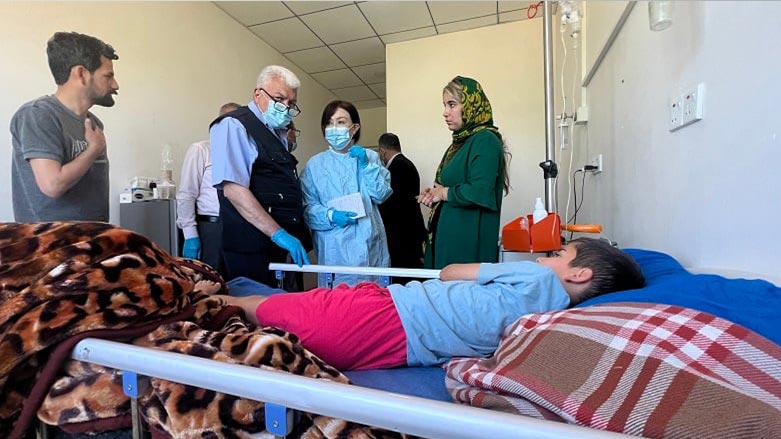WHO and Iraqi Ministry of Health jointly investigate Meningitis outbreaks in Halabja and Sulaimani

ERBIL (Kurdistan 24) – A team of experts from the World Health Organization (WHO) and the Iraqi Ministry of Health have been deployed to areas affected by a surge of meningitis cases in Halabja City and Sulaimani governorate since mid-April 2023, according to a statement from WHO.
An initial analysis of 24 collected samples revealed that two pathogens were responsible for meningitis: streptococcus pneumonia and enterovirus, the statement added.
“The majority of the cases involved school-aged children, with boys affected twice as often as girls. The upward trend of cases is still ongoing, with the epicentre of the epidemic located in the centre of Halabja and nearby Serwan City,” according to the WHO.
“No deaths have been reported so far; nonetheless, it is crucial that we act quickly to detect, confirm and treat cases to effectively curb the transmission and control the outbreak,” Ahmed Zouiten, WHO Representative in Iraq, said.
Healthcare professionals are working tirelessly to treat patients. Challenges such as critical shortage of staff, essential medicines, and supplies have been observed in hospitals, per the statement.
In collaboration with the Ministry of Health, WHO will organize a multidisciplinary meningitis training for surveillance staff, health care professionals, and laboratory technicians in Halabja and Sulaymaniyah. This will be done during the week of May 21, 2023, according to the statement.
Riyadh Al-Hilfi, Director-General of the Public Health Directorate in the Ministry of Health, said their current priority is to curtail the spread of the meningitis outbreak and deliver urgent and effective care to those affected.
Depending on the identified causal pathogen, response strategies may include a pneumococcal vaccination campaign for children, adherence to infection prevention and control measures, and enhancing community education and awareness.
Chiori Kodama, Medical Officer, Infectious Hazard Prevention and Preparedness program at the WHO’s Regional Office for the Eastern Mediterranean, explained that in response to the current outbreak, the WHO has already begun to take prompt actions by enhancing surveillance, data collection, and laboratory capacity for case management.
